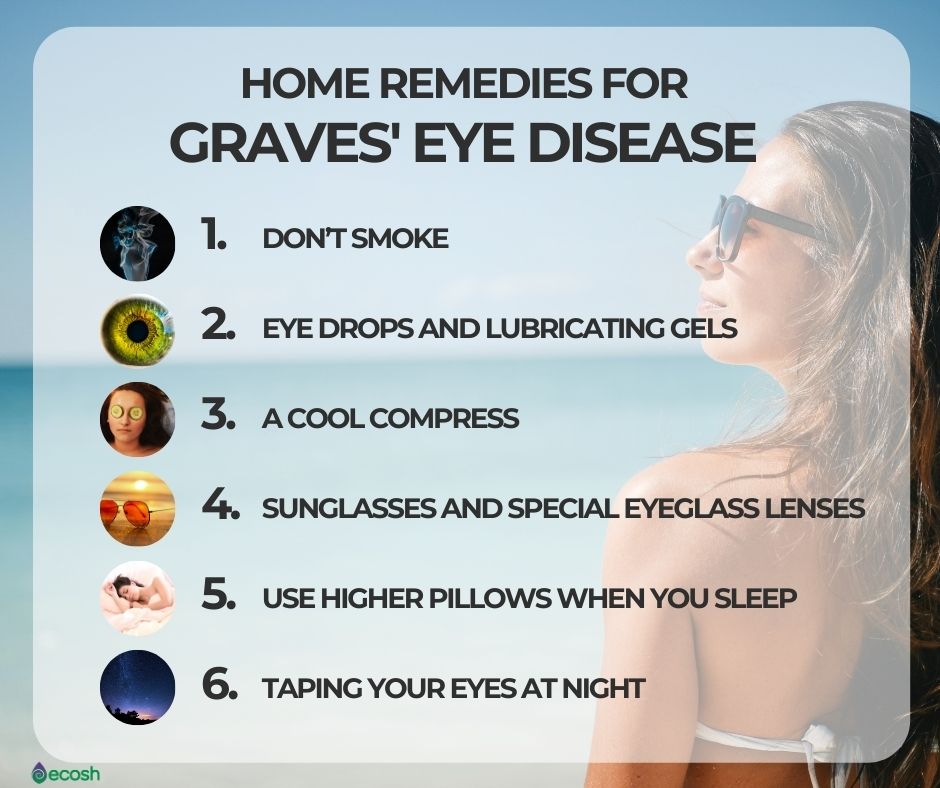
Understanding Thyroid Eye Disease (TED)
Thyroid Eye Disease (TED), also known as Graves' ophthalmopathy, is an autoimmune condition where the immune system mistakenly attacks the tissues around the eyes. This often occurs in individuals with hyperthyroidism, specifically Graves' disease, but it can also affect those with hypothyroidism or even people with normal thyroid function. TED can cause a range of symptoms, from mild eye irritation to severe vision impairment. Common symptoms include bulging eyes (proptosis), double vision (diplopia), dry eyes, red eyes, eyelid retraction, and swelling around the eyes.
While conventional medical treatments like corticosteroids, teprotumumab, and surgery are often necessary, a holistic approach can play a significant role in managing symptoms and improving overall well-being. This approach focuses on addressing the root causes of inflammation and supporting the body's natural healing processes.
The Holistic Approach to Managing TED
A holistic approach to managing Thyroid Eye Disease considers the interconnectedness of the body, mind, and spirit. It aims to address not just the symptoms but also the underlying imbalances that contribute to the condition. This often involves a combination of lifestyle modifications, dietary changes, stress management techniques, and targeted therapies.
Dietary Considerations for TED
Diet plays a crucial role in managing inflammation and supporting overall eye health. Certain foods can exacerbate inflammation, while others can help reduce it and promote healing. Here are some dietary recommendations for individuals with TED:
- Anti-inflammatory Foods: Incorporate plenty of anti-inflammatory foods into your diet, such as fatty fish (salmon, mackerel, tuna) rich in omega-3 fatty acids, leafy green vegetables, berries, nuts, and seeds. Omega-3 fatty acids help reduce inflammation and support eye health.
- Antioxidant-Rich Foods: Antioxidants protect the eyes from damage caused by free radicals. Include foods rich in antioxidants, such as brightly colored fruits and vegetables like carrots, sweet potatoes, spinach, blueberries, and kale.
- Selenium: Selenium is an essential mineral that supports thyroid function and may help reduce the severity of TED. Good sources of selenium include Brazil nuts (eat in moderation due to high selenium content), tuna, eggs, and sunflower seeds.
- Avoid Processed Foods: Processed foods, sugary drinks, and refined carbohydrates can contribute to inflammation and worsen TED symptoms. Limit your intake of these foods.
- Gluten and Dairy: Some individuals with autoimmune conditions may benefit from avoiding gluten and dairy, as these foods can trigger inflammation in some people. Consider an elimination diet to see if these foods are contributing to your symptoms.
Lifestyle Modifications for TED
Lifestyle changes can significantly impact the management of TED. Here are some key lifestyle modifications to consider:
- Smoking Cessation: Smoking is a major risk factor for TED and can worsen its symptoms. Quitting smoking is crucial for managing the condition and preventing further damage to the eyes.
- Adequate Sleep: Getting enough sleep is essential for overall health and can help reduce inflammation. Aim for 7-8 hours of quality sleep each night.
- Sun Protection: Protect your eyes from the sun by wearing sunglasses and a hat when outdoors. UV radiation can exacerbate TED symptoms.
- Eye Lubrication: Dry eyes are a common symptom of TED. Use lubricating eye drops regularly to keep your eyes moist and comfortable. Consider using preservative-free eye drops to avoid irritation.
- Elevate Your Head: Elevating your head while sleeping can help reduce swelling around the eyes. Use an extra pillow or adjust your bed to a slight incline.
Stress Management Techniques
Stress can worsen autoimmune conditions like TED. Implementing stress management techniques can help reduce inflammation and improve overall well-being. Consider incorporating the following practices into your daily routine:
- Meditation: Meditation can help calm the mind and reduce stress. Even a few minutes of meditation each day can make a difference.
- Yoga: Yoga combines physical postures, breathing exercises, and meditation to promote relaxation and reduce stress.
- Deep Breathing Exercises: Deep breathing exercises can help calm the nervous system and reduce anxiety.
- Spending Time in Nature: Spending time in nature has been shown to reduce stress and improve mood.
- Engaging in Hobbies: Engaging in activities you enjoy can help reduce stress and improve your overall quality of life.
Targeted Therapies and Natural Remedies
In addition to dietary and lifestyle modifications, certain targeted therapies and natural remedies may help manage TED symptoms. It's crucial to consult with your healthcare provider before starting any new therapies or supplements.
- Acupuncture: Some studies suggest that acupuncture may help reduce inflammation and improve eye symptoms in individuals with TED.
- Herbal Remedies: Certain herbs, such as turmeric (curcumin) and ginger, have anti-inflammatory properties and may help reduce TED symptoms. However, more research is needed to confirm their effectiveness. Always consult with a qualified herbalist or healthcare provider before using herbal remedies.
- Supplements: In addition to selenium, other supplements that may be beneficial for TED include vitamin D, vitamin C, and coenzyme Q10. Talk to your doctor to determine if these supplements are right for you.
- Castor Oil Packs: Applying castor oil packs to the eyelids may help reduce inflammation and promote healing.
- Lymphatic Drainage Massage: Gentle lymphatic drainage massage around the eyes may help reduce swelling and improve circulation.
Working with Your Healthcare Team
A holistic approach to managing Thyroid Eye Disease is not a replacement for conventional medical treatment. It's essential to work closely with your ophthalmologist, endocrinologist, and other healthcare professionals to develop a comprehensive treatment plan that addresses your specific needs. This plan may include medications, surgery, and holistic therapies. Open communication with your healthcare team is crucial for ensuring the best possible outcome.
Remember that managing TED is a journey, and it may take time to find the right combination of treatments and lifestyle modifications that work for you. Be patient with yourself, and celebrate small victories along the way.

0 Comments